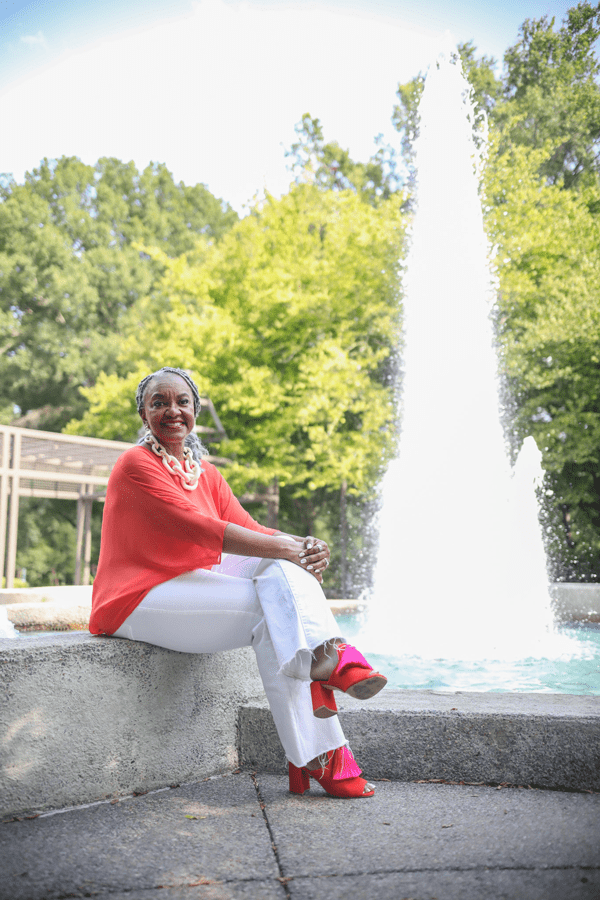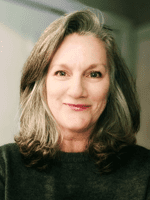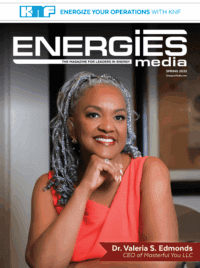Never underestimate the impact of an internship. Dr. Valeria Edmonds’ entire career trajectory was changed by an internship with Exxon in 1990.
“It opened my mind to the world and really did expand my worldview,” says Edmonds, who eventually spent over 33 years at Exxon [which became ExxonMobil upon merging with Mobil in 1999], retiring in December 2023 as global human resource leader, and has run her own business, Masterful You LLC, as a leadership coach and consultant, since 2012.
In the two years between her undergraduate degree in personnel management from the University of Memphis and her MBA from Howard University, Edmonds accepted an internship at one of Exxon’s international headquarters, where she had the opportunity to work with people from different countries and exchange ideas on global issues.
“It opened my eyes to the fact that not only is the U.S. economy energy based, but the world economy is energy based,” which led Edmonds to the realization that the work the company was doing was going to have an impact on the world at large. And that aligned with her personal philosophy: “I have always been motivated by having a bigger purpose in life.”
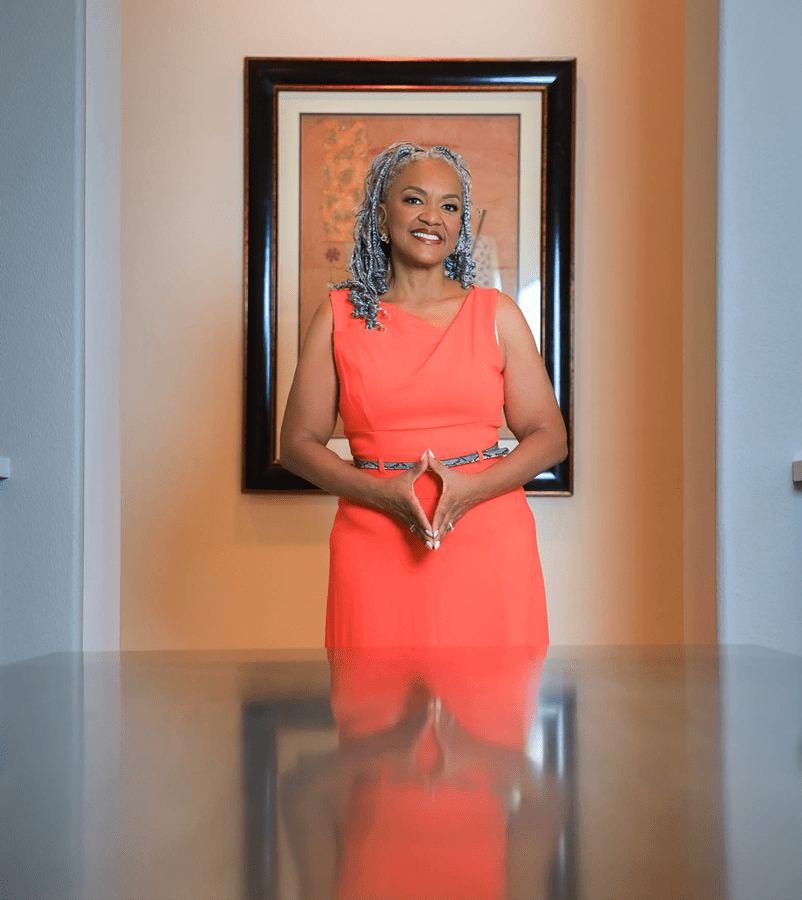
Edmonds, who excelled in math and science, was encouraged by school counselors to go into engineering. She wasn’t exactly sure what career path an engineer could take, so, as part of her engineering program at the University of Memphis (U of M), she participated in a field trip to a chemicals plant. While there, she realized that working in a plant, wearing a hard hat and steel-toe boots, was not something she felt comfortable with.
“Long story short, after joining Exxon, I found myself working as an HR manager in a chemicals plant with a hard hat and steel-toe boots. The irony of that was not lost on me!” she says laughing.
Finding Home
Upon graduating from U of M in 1987 with a bachelor’s in personnel management, Edmonds, who had been working for Delta Airlines, entered a difficult job market. She was told by Delta that she could do a one-year rotation in personnel, but there was no guarantee that she would stay in personnel – and there wouldn’t be a pay increase.
“I really wanted to work in HR because I loved applying the lessons that I had learned [as an undergrad], so I went to Howard University and got my MBA.” It was during the two years between her bachelor’s and master’s degrees that Edmonds interned at Exxon, which led to her epiphany about the role energy plays in the global economy.
Joining the oil major in 1990 felt like “home,” Edmonds says. “Not because there were a lot of people that looked like me, but because we had a lot of similar values,” something she wouldn’t fully realize until five years later when she left briefly.
Returning Home
“Back in the ‘80s when I was in MBA school, we were told everybody would have five jobs in their career. People would move around and wouldn’t stay in any one place for more than seven years. That story has been out there for a long time.”
Taking it to heart, even though she wasn’t looking for a job, and seeing that the job market was really hot five years later – unlike when she had entered the workforce – she accepted a role at Continental Airlines, where she spent a short stint as HR Manager, Reservations Division. While she calls it a “good company,” it was very different than the corporate culture built on collaboration that Edmonds had become accustomed to at Exxon.
“There was never one person that made a decision [at Exxon]; you always had to involve everybody. A lot of people call that bureaucracy, but it felt safe. HR had a voice; finance had a voice – even in engineering decisions. When we made decisions, I felt like they were well thought out and well processed, and that aligned with my personal values of very strong ethics.”
At the time, Continental Airlines [which merged with United Airlines in 2010] was “a blowing and going organization,” Edmonds says. “It was very fast-paced and I wasn’t as comfortable with how quickly decisions were being made, but that was the nature of their business. They needed to make decisions faster.”
After six months, Edmonds returned “home” to Exxon and never looked back.
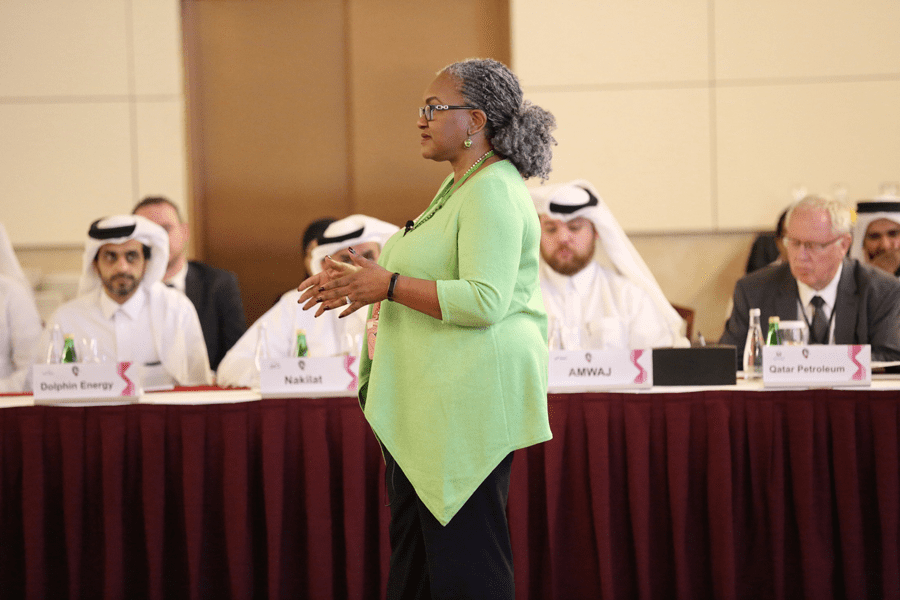
Committing to the Long-Term
Edmonds reiterates the reason she originally chose to work at Exxon, and later chose to stay for over three decades, is because the company aligned with her personal values and contributed to her sense of well-being in the workplace. Citing the old adage “iron sharpens iron,” she thrived on working with and learning from smart people, and believes that they learned from her, as well.
She credits the company with being a merit-based organization that encourages continuous learning and improvement. In order to work and compete with engineers and other highly skilled, intelligent people, she points out that it is imperative to stay relevant and be competitive.
“You can’t rest on your laurels or what you did last year. I’ve always loved learning and so it was just really important for me to keep up my skills, but I got my PhD at 58 [earning a Doctorate of Philosophy from Carolina University in 2022] more because it had always been a dream of mine.”
Having said that, Edmonds doesn’t believe people have to have multiple degrees to be successful. Acknowledging that the world needs people in trades (“there are a lot of smart people that don’t have degrees”), she admits that in many corporations there is a bias toward having a college degree. Potential employees need to recognize that to be competitive in a corporation, particularly one in an industry like energy that focuses heavily on STEM, at a minimum, they most likely need to have a bachelor’s degree; other areas may require a higher level of education.
“The most important thing,” Edmonds advises, “is to constantly add to your skill set, stay abreast of changing technology in your field, and be open to opportunities to do something new and different. Those are the things that will keep you relevant and marketable because resting on your level of education and knowledge won’t make a difference in the global marketplace.”
Exxon also gained her loyalty because it allowed her to move departments and change positions frequently, enabling her to learn new aspects of HR and gain additional skills, which kept things interesting. Throughout her career, Edmonds saw herself as having the opportunity to learn and grow and aspire to senior management within the company, but says she learned over time, “There’s a cost to how far you can go.”
Linchpins to Success
“I’ve always identified myself as being a leader regardless of my position,” Edmonds says, explaining that she doesn’t believe leadership relates to a title. Instead, it is someone who can see something better – someone who has a vision, who can articulate a plan or strategy, and who can motivate people to join them in that effort.
“I always felt like I was the leader and was responsible for helping move the organization and I really loved working with supervisors.”
Using a variation on an old saying, “People leave supervisors and teams; they don’t leave organizations,” Edmonds recognized early on that the supervisors were the “linchpins to success,” and became passionate about helping develop supervisors, eventually becoming known for working on supervisor effectiveness within ExxonMobil. While her work in HR was multi-faceted, she made it a point to volunteer and work on initiatives involving leadership.
“I always did it as my side hustle,” she says laughing, but it also led her to getting certified as a leadership coach, something she realized she could do in retirement. She formed her company, Masterful You LLC in 2011, although she stayed with ExxonMobil another 12 years before retiring from her last role as HR Director in 2023.
Being Seen as an Expert
Among the many perks of working for an international oil company (IOC) is landing a coveted overseas assignment. One of the highlights of Edmonds’ long career with ExxonMobil was being seconded to QatarEnergy for a three-year assignment in 2015, which ended up turning into a seven-year stay.
Having worked in the international headquarters for Exxon at the beginning of her career, Edmonds says her time in the Middle East wasn’t about learning how to work with different cultures as much as it was gaining a different perspective on what being a global leader is.
She feels that most U.S. – and even European companies – send leaders abroad to learn about working in different cultures, but take a western mindset and apply it in a different environment and culture. “Qatar flipped that on its head.”
Managed and led by locals, every team was a global team with members from around the world. “Those were leaders who had to learn how to be culturally competent,” she says, pointing out that “it forces [leaders] to focus on what people bring to the table – their skills and their abilities – both when you’re staffing and when you’re evaluating their performance. It’s just a completely different way of leading.”
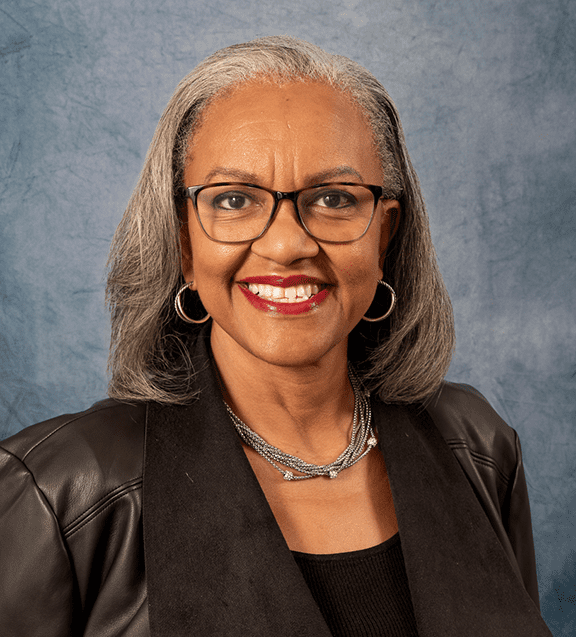
One year, Edmonds, along with a friend who was an attorney for Shell, were preparing to speak on a panel for International Women’s Day, when they both had the same revelation: “We never thought about race in Qatar.” Coming up in American corporations, as women of color, she explains they always second-guessed situations.
“Are they saying this because I’m a woman? Are they saying this to me because I’m Black?” she asks rhetorically, explaining what would go through their minds. “You never lose that sense of questioning. It doesn’t even have to be a microaggression. It can just be questioning your existence – and people thinking you’re a DEI hire, for that matter.”
Despite the fact that she was often the only woman in the room in Qatar (a situation not so different from working in the energy industry in the U.S.), she says people told her they didn’t see her as Black and they didn’t see her as a woman.
“I had been sent over there as an expert and I felt like people appreciated me for what I brought to the table. I had never gone someplace where I felt that much respect and that valued. It was so empowering to have my expertise and my contribution appreciated and leveraged.”
DEI by Any Other Name
“I worked for EM for 33 years and, clearly, I was working in this space before it was called DEI,” Edmonds says. In her opinion, it really doesn’t matter what it’s called. “There is always going to be a need for organizations who want to be successful to make sure that they’re staffing their organizations with the best talent available in the marketplace. You still have to motivate and retain employees, and want a work environment that makes people feel like home, where they can be themselves, so that they’re motivated and engaged.”
There is abundant research that shows diverse teams produce better results. As the global labor force becomes more and more diverse, Edmonds doesn’t believe it will be possible for companies to stay competitive, if they are only hiring from parts of the talent pool.
“Smart organizations recognize that,” she says, “and they will find a way to address diversity gaps in their pipeline and create inclusive work environments – no matter what it’s called.”
She thinks this initially could present challenges because companies that were quick to roll back policies and jobs and practices weren’t sincere in the first place. She predicts real repercussions in the short term and says, “We’ll have to see how they rebound but, for the most part, I think companies eventually are going to have to have a diverse organization or they could become obsolete.”
A world traveler, Edmonds, who has been to over 50 countries for both business and pleasure, says, “I definitely think the best [solution] to our challenges in the U.S. with inclusion and diversity is for people to travel more.”
The Secret to Success
Edmonds has a daughter, with whom she recently co-authored a book on the power of intergenerational mentorship (see sidebar), and a son, who graduated with a degree in mechanical engineering. Although he did two internships at ExxonMobil in engineering, the last project he worked on involved big data, and Edmonds says, “He really got [pulled] into that; he loves big data,” and is now a data scientist for AT&T.
While she is referring to her son’s work, Edmonds could be talking about her long career in the energy industry – or giving advice to one of her clients – when she says, “If you find something that you’re passionate about, and the world needs, and you get paid – that’s the sweet spot.”
To learn more about Edmonds’ consulting work, visit Masterful You.
 In a world where women often navigate life’s stages in isolation, Woman to Woman: The Power of Intergenerational Mentorship written by mother and daughter duo, Valeria and Rachael Edmonds, delivers a timely message of connection, wisdom, and shared growth. This new book invites women of all ages to discover the transformative power of mentoring relationships, guided by the scriptural foundation of Titus 2:3-5. Available May 1, 2025, from Amazon and wherever books are sold.
In a world where women often navigate life’s stages in isolation, Woman to Woman: The Power of Intergenerational Mentorship written by mother and daughter duo, Valeria and Rachael Edmonds, delivers a timely message of connection, wisdom, and shared growth. This new book invites women of all ages to discover the transformative power of mentoring relationships, guided by the scriptural foundation of Titus 2:3-5. Available May 1, 2025, from Amazon and wherever books are sold.
Headline photo: Dr. Valeria Edmonds at the Botanical Gardens in Memphis, TN. Photo courtesy of Jymae The Creative (IG @jymaethecreative).
Rebecca Ponton is the editor in chief at U.S. Energy Media and author of Breaking the Gas Ceiling: Women in the Offshore Oil and Gas Industry. She is the publisher of Books & Recovery digital magazine.

